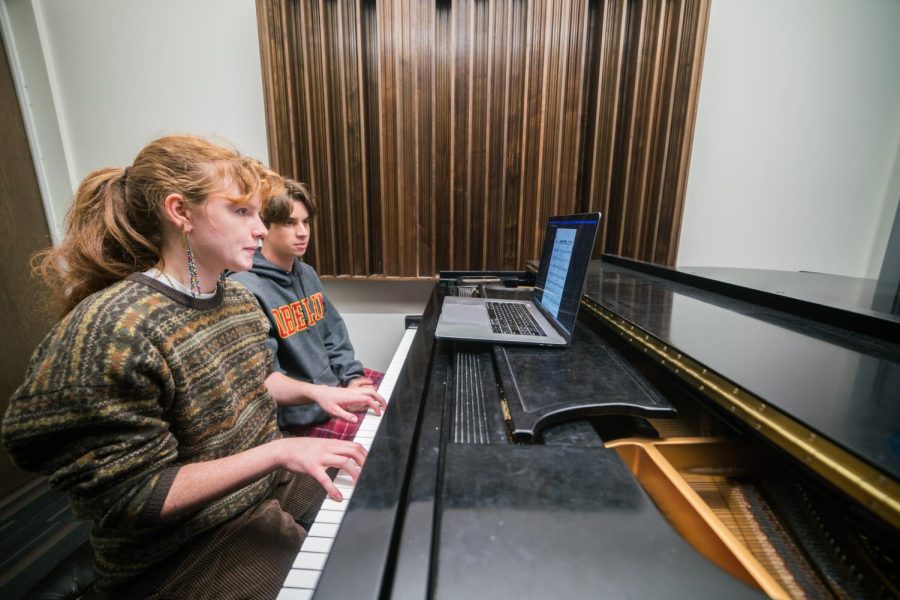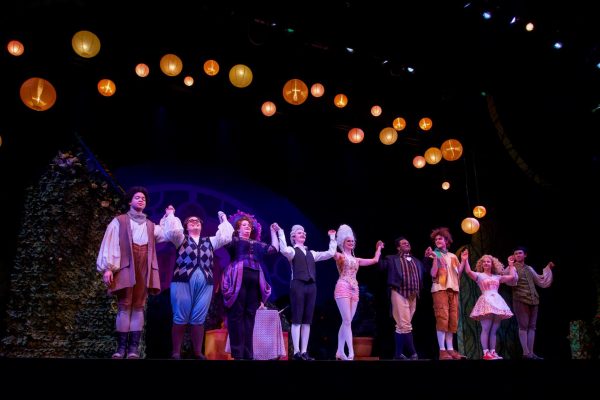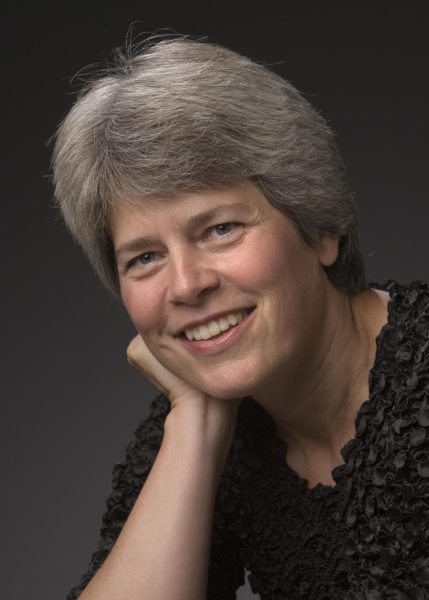Conservatory Students Teach In Secondary Lesson Program
Photo by Abe Frato, Photo Editor
Lyric Anderson teaches a secondary private lesson.
Every week, students in the Conservatory share their music in more ways than one. Through the Secondary Private Lessons program, Conservatory students can become private instructors for other College and Conservatory students seeking to improve their artistry on their instrument or even looking to explore a new instrument for course credit. Students need no experience to apply but must submit an application and audition for placement with a teacher.
This program is unique in several ways. First, it helps bridge the noticeable gap between musicians in the College and musicians in the Conservatory. But maybe more special are the numerous reasons students come to teach through this program and the many things they learn through reversing their relationships with their instruments — from student to teacher.
Second-year double-degree Jazz Piano and Environmental Studies major Lyric Anderson initially became involved with the program because he wanted to teach some of his friends, yet teaching secondary lessons has grown to have a great impact on him as a performer.
“I have found that there’s a lot that I take for granted as a musician because I’ve been playing for so long,” Anderson said. “And then to someone who doesn’t know basic chords and Roman numeral patterns and stuff, I don’t even know how to explain that to them because it’s so ingrained in my head. It really makes me go back to when I was a beginner. … I think everyone should teach.”
For Conservatory second-year and Clarinet Performance major Khai Nien Nguyen, teaching is a form of spiritual fulfillment, which he gains from helping others. This altruism is one of the reasons he wishes to pursue graduate studies so he can continue to teach as a career. “I had one student who was very closed off from people and was struggling to connect with peers,” Nguyen said.
“I tried to just make him feel comfortable and feel like our lessons were a place he could talk. And one day he just said, ‘Thank you so much,’ and I was so happy. I think the moments like that when you’re teaching just make it so spiritually fulfilling.”
Nguyen also highlighted the importance of having opportunities to teach secondary lessons for students looking at education as a potential career, especially at a school that doesn’t have a music education program.
“I think the most important thing for me to get out of music school is education, and that’s kind of the path I hope to see myself on,” Nguyen said. “I think at Oberlin, because [it’s] so performance focused, it can be hard to kind of get into that sometimes, but this was the perfect way.”
Zoë Bell, a Conservatory fourth-year who teaches secondary cello lessons, had a more formal approach to the secondary lesson sphere but expressed a similar sentiment about the effects of teaching on her musicianship. Before teaching in the program, Bell had some experience with string pedagogy through her coursework at Oberlin, and with the encouragement of her private teacher, she decided to put her knowledge to work. She spoke on the importance of pedagogy for musicians — learning about your playing through teaching others.
“I think that at least one pedagogy class would be helpful for every single Conservatory student,” Bell said. “I’ve learned a lot about my own technique from these classes. It’s not just about what you’re teaching, but it’s about how you teach it, and how you learn these things.”
Bell also touched on the beauty of teaching students who have less knowledge about Western classical music as a way to rewrite the narrative.
“It’s really exciting to be able to introduce College students or people who don’t know [very much] about the Conservatory … or just music in general to different kinds of music, to newer kinds of music, to underrepresented composers,” Bell said.
The secondary lesson program is also noteworthy because the instruction counts as a two-credit course, which makes it free for students. Students meet for one 30-minute lesson per week for the whole semester. While student teachers receive a small salary, organizing lesson times, reserving classrooms, and finding materials makes teaching these secondary lessons a big logistical undertaking. But Anderson and Bell both commented on the value of the program and the need to improve promotion so that more students know to take advantage of this unique College and Conservatory experience.
“This sounds kinda cheesy, but seeing myself in [my students] — because obviously I’ve been where they’re at — … and then seeing my students actually start to understand pretty high concept stuff is so rewarding,” Anderson said.




